The cities in the rear are restless. How Russia casts terror into the hearts of civilians hundreds of kilometres from the front line
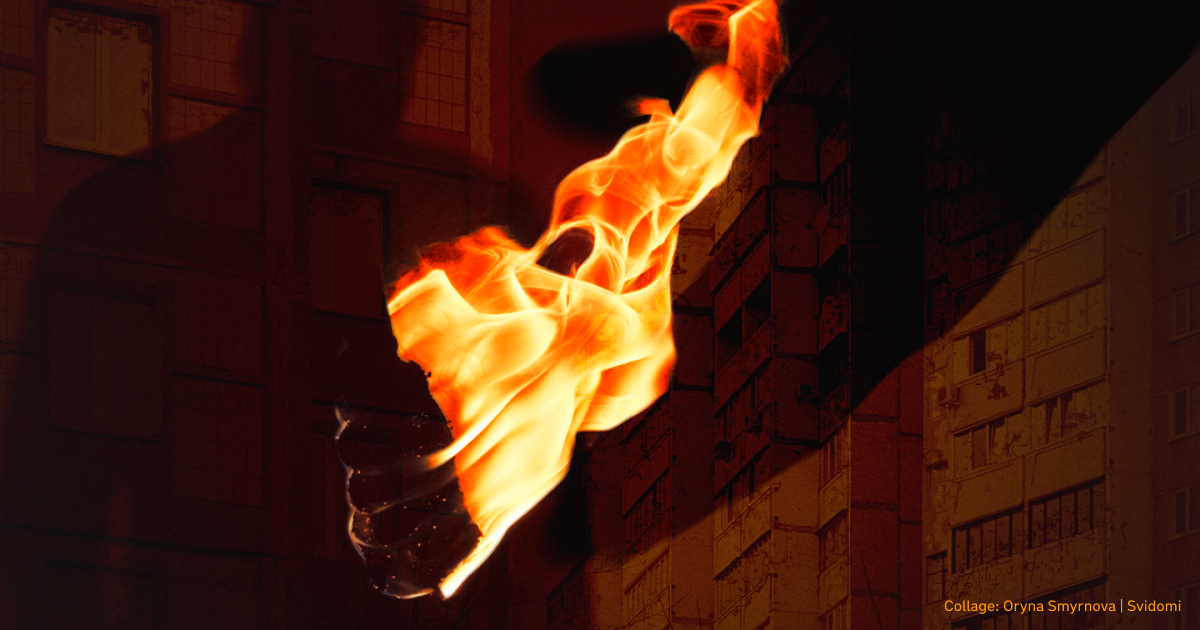
Terrorist attacks, sabotage and arson against civilian objects are part of Russia's strategy to spread fear and panic in Ukrainian society. Terrorist attacks have been targeted in rear cities, including Lviv, Kyiv, Ivano-Frankivsk and others, which were prevented by the Security Service of Ukraine.
Russia continues to use terror as a lever to influence the mental state of society. By threatening to attack schools and bombing public buildings, Russia aims to create panic and undermine the situation in Ukraine.
Svidomi explains how Russia has targeted civilians since the war began in 2014, what the goals of Russian terror have been, and the legal intricacies of Russia as a "terrorist state".
Ukraine's terror that never ends
On the night of September 17-18, a series of arson attacks on civilian infrastructure took place in Lviv. The press service of the Security Service of Ukraine in the Lviv region issued a statement to Svidomi. In it, the SSU press service stated that Russia was not involved in the incidents.
At the same time, Ukrainian cities face a real threat of terrorist attacks. Svidomi previously wrote about the recruitment mechanisms used by the Russian FSB to set fire to Ukrainian military vehicles. You can read more about this in Microloans, Telegram and the FSB — how and who makes Ukrainians set fire to military vehicles.
In addition to military vehicles, infrastructure is also at risk: cafes, restaurants, educational institutions, etc. The intensification of such processes began in 2024, although their beginnings can be traced back to 2014. For example, the downing of Malaysia Airlines Flight 17 (MH17). In 2022, a court in The Hague sentenced those responsible for the crash, including Hirkin, Dubinsky and Kharchenko, to life imprisonment.
The terrorist attack on MH17 took place close to the line of combat during the anti-terrorist operation. In 2017, a terrorist attack took place near the Espresso TV channel in Kyiv, killing two people and injuring three others. Among them was the Ukrainian People's Deputy Ihor Mosiychuk. The then deputy head of the Security Service of Ukraine, Viktor Kononenko, told a briefing that the organiser was an employee of the Main Directorate of the General Staff of the Russian Armed Forces (also known as the GRU). Immediately after the terrorist attack, one of the perpetrators managed to leave for occupied Crimea (Qırım), and the other fled to the territory of the occupied Chechen Republic of Ichkeria.
Today, Ukraine is more successful in combating terrorism. In the first half of 2024, the Security Service of Ukraine detained numerous criminal groups who were planning terrorist acts in Lviv, Kyiv, Ivano-Frankivsk, Zaporizhzhya and other cities.
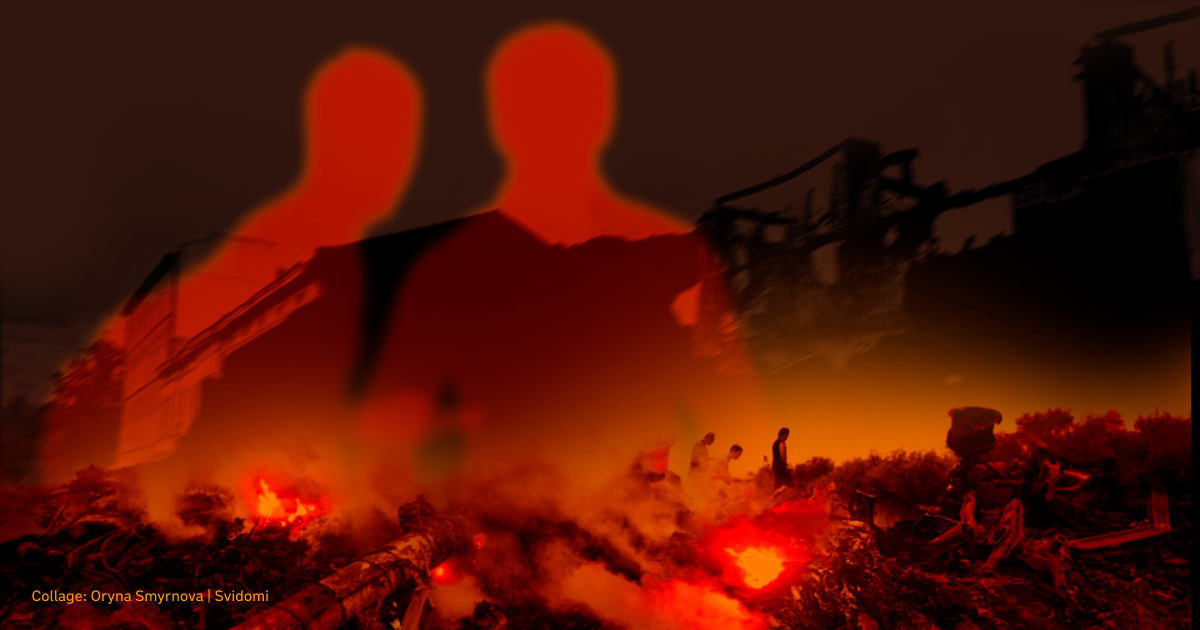
In May this year, a similar group was detained in the Kyiv region. The criminals planned to plant explosives in several shopping centres and cafes in Kyiv and detonate them on 9 May. The explosives were disguised as tea packets. Yuri Sizov, a member of the Russian military's GRU, was in charge of preparing the attack. Even before the Kyiv attacks, he supervised the training of similar saboteurs and terrorists in Lviv in February 2024. At that time, the target of the terror was to be a defence plant. The explosives were disguised as juice.
A group of terrorists in the Ivano-Frankivsk region, arrested in July this year, were supposed to achieve larger goals. The group, which was spread across the Ivano-Frankivsk, Dnipropetrovsk, Zaporizhzhya and Poltava regions, planned to carry out a series of terrorist attacks in shopping centres and pharmacies, as well as petrol stations and markets. The target was not only Ukraine but also Poland and the Baltic states. The group recruited people and sent them abroad with forged documents. This time, the Russian FSB ordered the terrorist attack. Law enforcement agencies seized assault rifles, pistols and ammunition to be used in the attacks.
A more standard form of terrorism used by Russia is attacks on civilian and critical infrastructure in Ukraine. Russians often recruit locals for this purpose: for money or, in rare cases, 'for an idea'. Such cases have occurred in the Donetsk, Kherson, Odesa and Ivano-Frankivsk regions. In Kyiv, an IT company tried to pass information about the state of the Ukrainian energy sector and the consequences of strikes on it to Russian special services. This was done by installing monitoring software in the electronic document management system of one of the regional state administrations.
However, terrorist attacks are not always large-scale. Localised attacks on Ukrainian citizens are more difficult to prevent and therefore not always successful. The most high-profile recent case of such an attack was the murder of Iryna Farion in Lviv on July 19. The suspect is an 18-year-old boy from Dnipro. The Security Service of Ukraine is considering the version that the shooter was only the ‘executioner’ and that the murder itself was a targeted shooting paid for by Russian special services.
Investigations are underway, but this possibility may well be true. Russia already has experience in recruiting teenagers for its purposes, both in Ukraine and in the EU. NGL.media has previously written more about Russia's youth recruitment tools in its article Puppets from the Telegram.
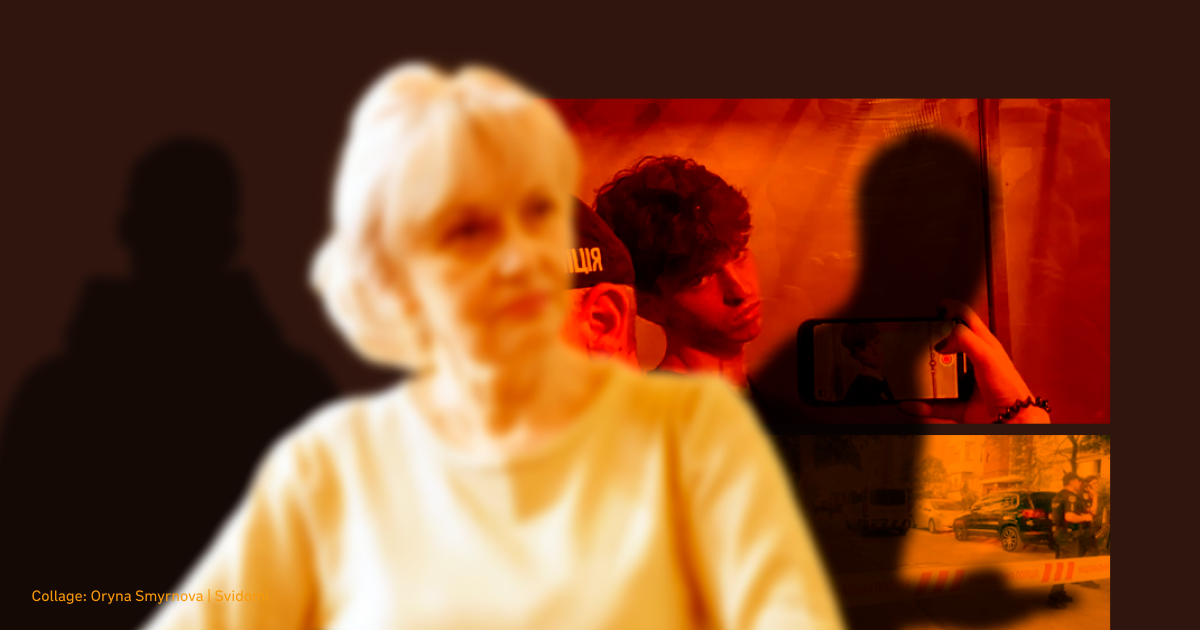
Terrorist attacks and terrorist actions are common tools for Russia to achieve its goals. Nuclear blackmail, sabotage and shelling of civilian infrastructure are frequent headlines in the Ukrainian media. The Russians also use terror on their own territory. The 1999 high-rise bombings in the Russian cities of Beslan, Nord-Ost and Crocus City were either carried out by the FSB or used in Russia to consolidate the population around the regime.
What are the goals of the Russians?
Terrorist attacks carried out by Russian special services have a primarily psychological and informational effect. "Russia's main goal is to create panic in society so that it loses its foothold," says former SSU officer Ivan Stupak.
"The Kremlin wants to create an image of civilians suffering, and Bankova Street is shown as 'behind the stone walls'."
In addition to the damage to the economy and defence capabilities caused by the shelling of infrastructure, Russia is trying to intimidate Ukrainian society. On 18 September, news of planned terrorist attacks in Lviv schools began to spread on Telegram channels in Lviv and Ukraine. The threats turned out to be a Russian method of intimidating civilians. "The channel, which became the main source of information about the attack, was run by Russians," the Interior Ministry said. The next day, police were on duty at all the city's educational institutions. Not only did the Russians raise concerns in the outlying towns, but they also forced the mayor's office to reduce security on the city streets themselves by reassigning police officers to schools.
This is the kind of influence the Russians are exerting not only in Ukraine but across Europe. In the case of the Frankivsk terrorist group, the SSU claims that Russia organises such attacks to undermine the socio-political situation in the European Union. This is part of Russia's well-developed policy.
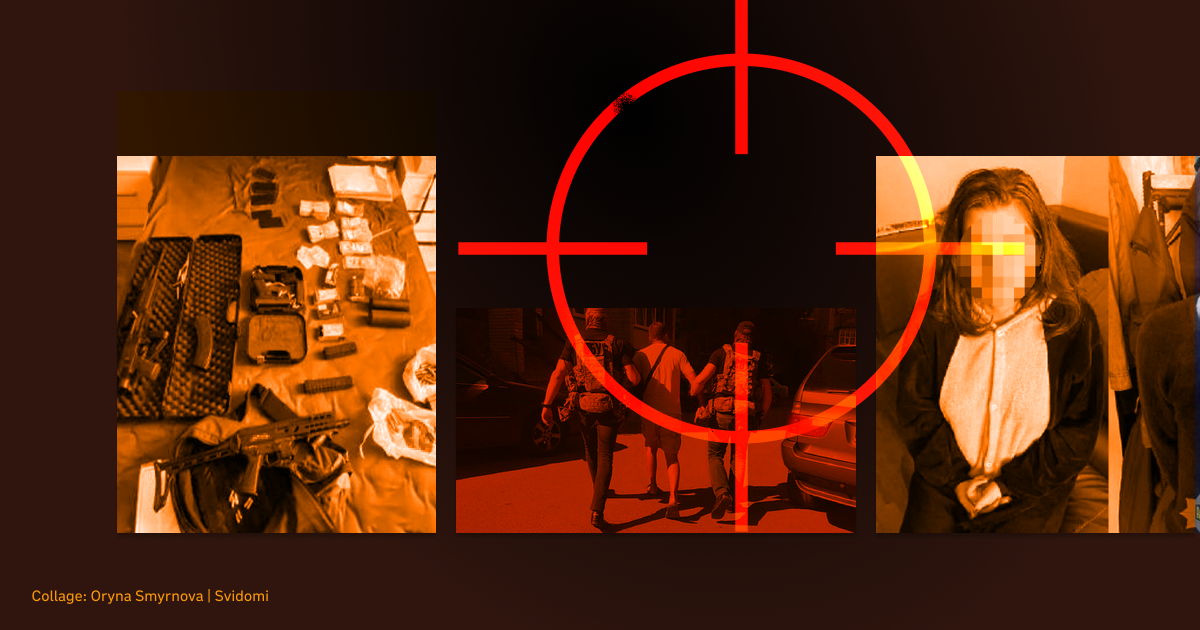
Svidomi has already written about other methods of influencing European societies in the article Russia's network of influence in Europe and North America. How Russia fosters terrorist and political organisations.
Who is responsible for terror in Ukrainian cities?
"Terrorist acts in peaceful cities of Ukraine are mainly organised by the Russian counterintelligence service," says Ivan Stupak. They draw up detailed plans for carrying out terrorist acts. To organise large-scale terrorist operations, the Russians can involve several dozen people in both Russia and Ukraine.
But not all of Russia's terrorist acts are planned in the distant offices of the GRU or the Counterintelligence Directorate. A large proportion of such actions are grassroots initiatives by officers that are very difficult to predict. Many people in Russia support the continuation of the war with Ukraine. Therefore, terrorist acts cannot be seen as a long-term strategy of the Russian Federation, but as attempts by individuals to advance in their ranks. Terror is their method of achieving their goals.
"They [the Russian special services — ed.] can report on this very well. We should not assume that everyone in the Russian special services is perfect. Yes, there are many clever professionals, we must admit that. The entire FSB is targeting Ukraine: Murmansk, Magadan, Irkutsk — all of them. There are already various people there. For example, there is a man who is already 45 years old. He is a senior agent who has achieved nothing in his life. He is told: 'Do something against Ukraine'. And he starts to do something. And there is a young lieutenant who will always invent and implement something new. And he expects payment in the form of medals, awards and military positions,” explains Ivan Stupak.
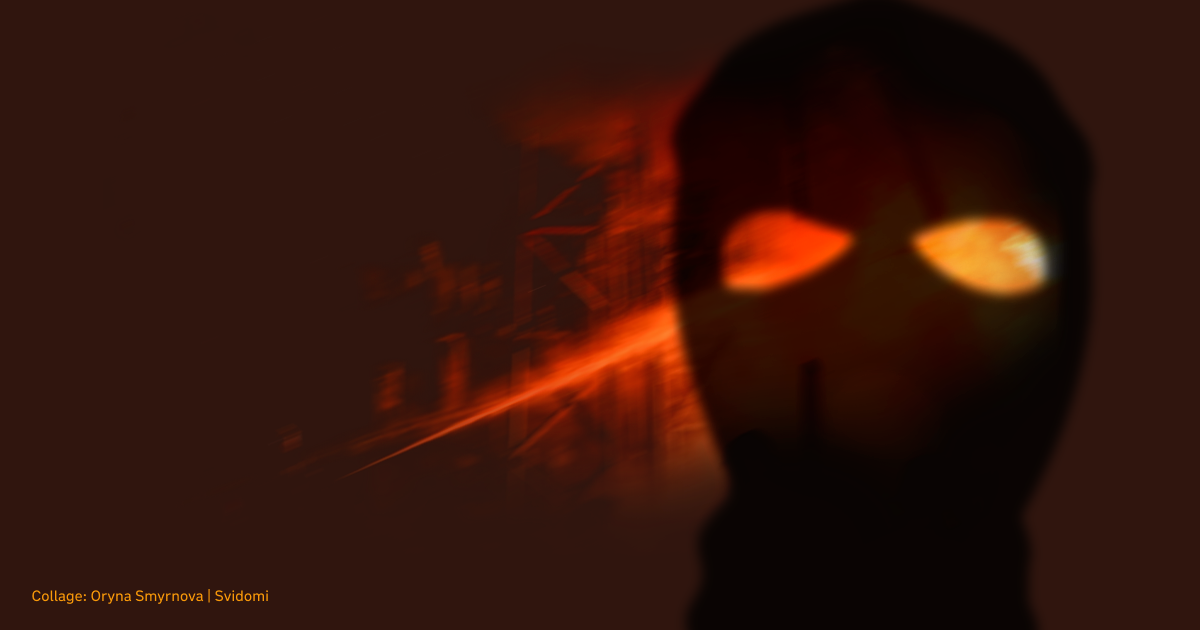
How does Ukraine counter such Russian actions?
"The increase in the preparation of terrorist acts in Ukraine in 2024 should be linked to the establishment of links between the FSB and the GRU in Ukraine," says Stupak.
"In 2024, the Russians began to recruit people who were tired of the war, who had an anti-Ukrainian attitude and now began to show it more actively. Before, the Russians could not transfer explosives or other means to them, because it is not easy to enter Ukraine. The SSU has been actively cutting Russian communication channels. There is person A and person G, and in the middle, there is no connection thanks to the SSU. But as time goes by, the organisers of terror find loopholes."
The Security Service of Ukraine has been much more successful in countering such actions by Russia, which is a significant difference from 2014. Ivan Stupak explains that the main factors behind the improvement in the current situation are greater public confidence in law enforcement and increased civic responsibility.

People's awareness is very important. In the United States, for example, there are signs at airports that say, 'If you see something, say something. Don't be silent'. Ukrainians also follow this rule now and report anything suspicious to the police: people, vehicles, objects. It was this 'it doesn't concern me' attitude that helped the Russians unleash their terror in Ukraine in the past. The absence of this is now helping to thwart the Russians' plans. Not 100%, of course, but the SSU can respond to calls from citizens and check for real threats. Even I receive such messages on Facebook, which I forward to the SSU, and they find out the details. Fortunately, out of 100 messages, only one can be a real threat, which we manage to eliminate.
Not terrorists, but war criminals. What is Russia really like?
At the start of Russia's full-scale invasion of Ukraine, Ukrainian society was flooded with calls for Western countries to recognise Russia as a 'terrorist state' because it shelled civilian infrastructure. Ivan Stupak disagrees that Russia is a 'terrorist state'.
What will this [the recognition of Russia as a terrorist state — ed.] mean for us? Okay, then those countries that have recognised it as a terrorist state (Poland, the Baltic states, the United States) should break off diplomatic relations with Russia because you can't have diplomatic relations with terrorists — that's one thing. Secondly, you do not negotiate with terrorists, you destroy them. So what is the next step? Is it declaring war [on the West against Russia — ed.]? And what about the citizens residing in that country, who also legally become terrorists [As representatives of a terrorist organisation, they should all be eliminated — ed.]? Some organisations have been called terrorists. Countries have never been called terrorists.

De facto, the status of a 'terrorist state' would not affect the Russian Federation in any way. Such a term does not exist in international law. Instead, the leadership of states and their military can be held responsible for war crimes. There are similar precedents in world history. So if we call the shelling of infrastructure or Russia's war crimes terrorism, then Russia's legal responsibility in the international arena is reduced accordingly.


